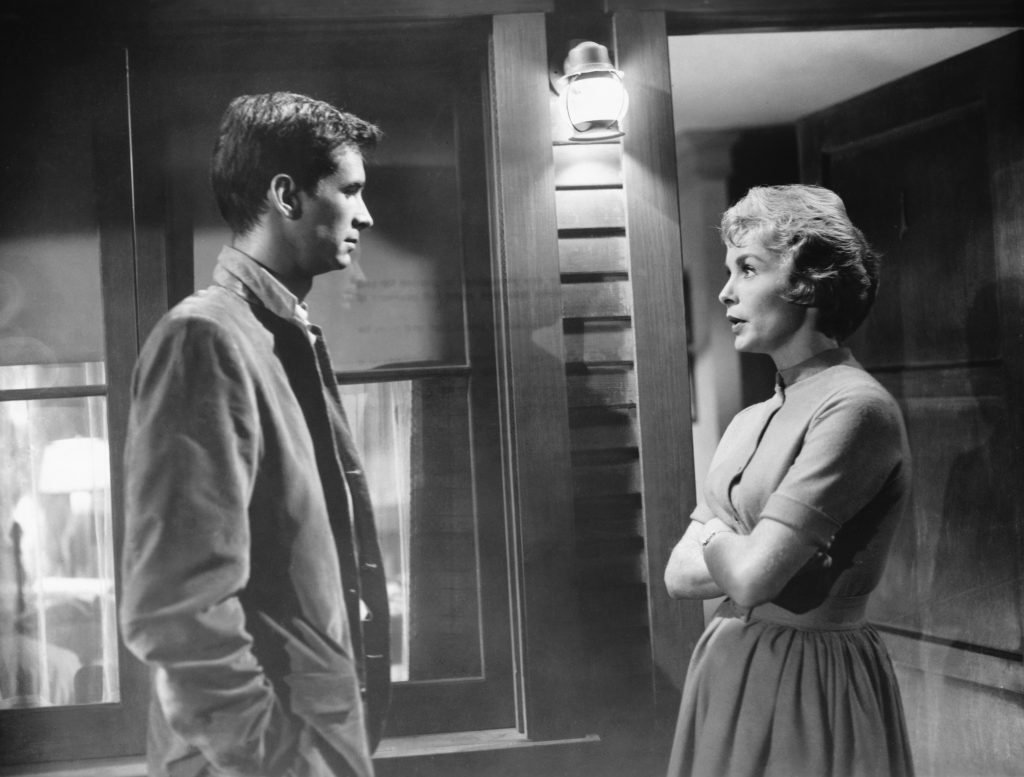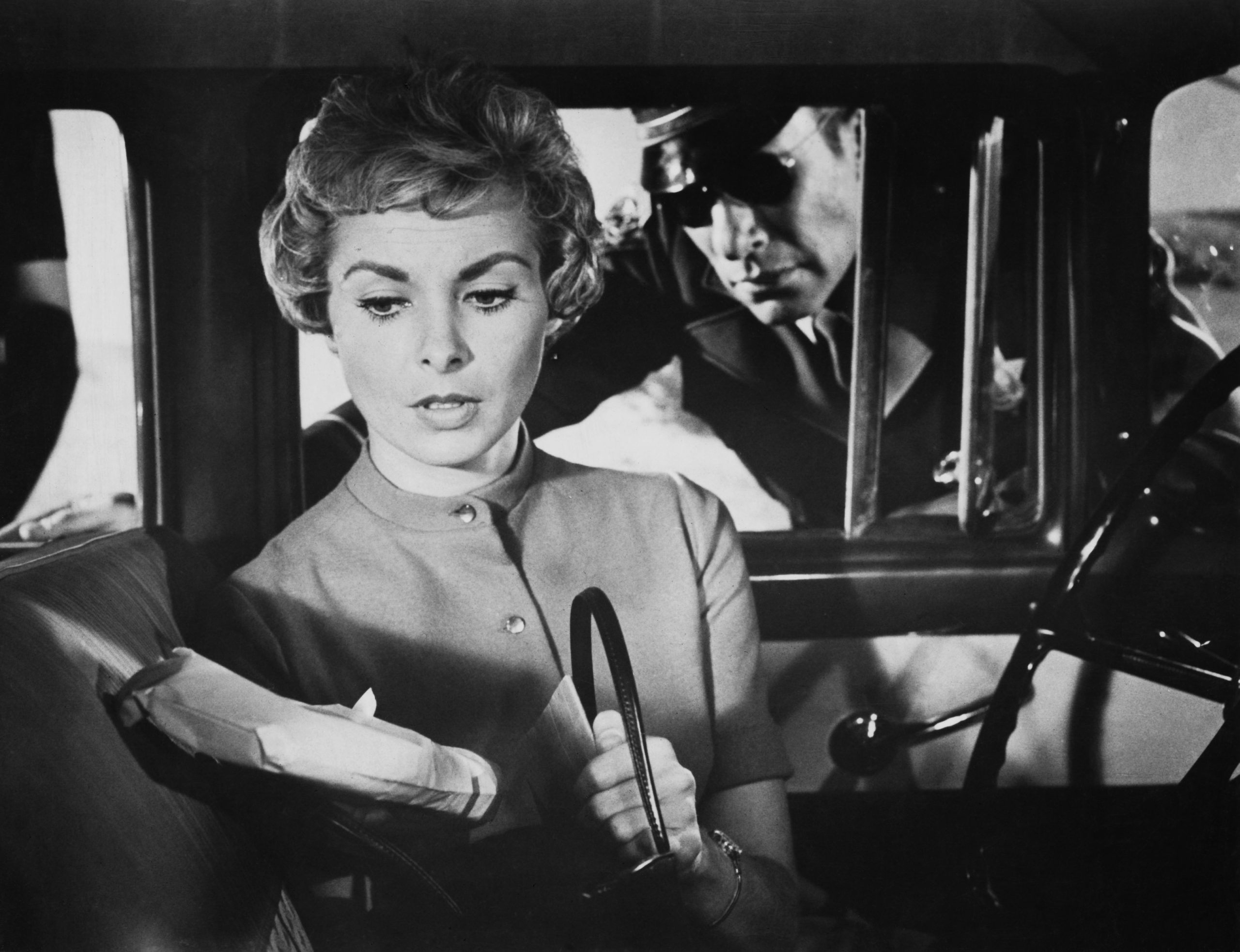Few films have managed to reshape an entire genre the way Psycho (1960) did. Alfred Hitchcock’s psychological thriller not only introduced audiences to a new level of suspense and shock but also laid the foundation for modern horror storytelling. With its masterful direction, chilling performances, and an unforgettable score, Psycho remains one of the most influential films in cinematic history.
Quick Summary Box
| Category | Details |
|---|---|
| Movie Name | Psycho (1960) |
| Director | Alfred Hitchcock |
| Cast | Anthony Perkins, Janet Leigh, Vera Miles, John Gavin |
| Genre | Psychological Thriller, Horror |
| IMDb Rating | 8.5/10 ⭐ |
| Duration | 1h 49m |
| Where to Watch | Amazon Prime, Apple TV, Digital rental platforms |
| Release Date | June 16, 1960 |
A Groundbreaking Narrative Without Precedent
At its core, Psycho tells the story of Marion Crane (Janet Leigh), a secretary who impulsively steals a large sum of money and seeks refuge at the secluded Bates Motel. There, she encounters the enigmatic Norman Bates (Anthony Perkins), a seemingly polite yet deeply troubled young man who runs the establishment. As the film unfolds, Hitchcock expertly manipulates audience expectations, delivering one of the most iconic twists in film history. The infamous shower scene alone has been analyzed and referenced countless times, solidifying Psycho as a cinematic landmark.
Characters & Acting Performances
- Anthony Perkins as Norman Bates: Perkins delivers one of the most chilling performances of all time, portraying Norman as both sympathetic and deeply unsettling. His ability to switch between charming and menacing is what makes the character so compelling.
- Janet Leigh as Marion Crane: Leigh’s portrayal of the doomed protagonist is both captivating and tragic, earning her a Golden Globe nomination and a place in horror history.
- Vera Miles as Lila Crane: As Marion’s determined sister, Miles adds a layer of intrigue and urgency to the film’s latter half.
- John Gavin as Sam Loomis: Gavin’s role as Marion’s boyfriend provides a more grounded, rational counterpoint to the film’s escalating tension.
Direction & Cinematography
Hitchcock’s use of black-and-white cinematography adds to the film’s eerie and timeless quality. His innovative camera work—such as extreme close-ups and unexpected angles—heightens the suspense and paranoia. Bernard Herrmann’s iconic score further enhances the film’s psychological tension, particularly during the shower scene, where the shrieking violins have become synonymous with cinematic horror.
Themes & Psychological Depth
Beyond its horror elements, Psycho is a deep exploration of psychological trauma, identity, and guilt. Norman Bates’ dual personality and troubled past serve as a haunting commentary on the effects of repression and mental illness. Hitchcock masterfully intertwines these themes with classic horror elements, making Psycho as thought-provoking as it is terrifying.
Strengths & Weaknesses
Strengths:
✔️ Unpredictable Plot – The narrative structure defies conventional storytelling, keeping audiences on edge. ✔️ Iconic Cinematography – The use of lighting and framing enhances the suspense. ✔️ Memorable Performances – Anthony Perkins’ portrayal of Norman Bates is legendary. ✔️ Pioneering Psychological Horror – Set a new standard for horror films to follow.
Weaknesses:
❌ Dated Special Effects – While effective for its time, some scenes may feel less impactful to modern audiences. ❌ Pacing in the Second Half – The film’s momentum slightly slows down after its shocking midpoint.
Influence on Modern Cinema

Few films have had as lasting an impact as Psycho. It laid the groundwork for future psychological thrillers and slasher films, inspiring directors such as Brian De Palma (Carrie), David Fincher (Se7en), and Wes Craven (Scream). Without Psycho, the horror genre as we know it might not exist.
If You Enjoyed Psycho, You Might Also Like:
Conclusion & Final Rating
Psycho is a masterpiece that transcends the horror genre. Hitchcock’s brilliant direction, the chilling performances, and the film’s groundbreaking narrative make it essential viewing for any film enthusiast. Over six decades later, it still holds up as one of the most unsettling and well-crafted psychological thrillers ever made.
Final Rating: ⭐⭐⭐⭐⭐ (5/5)
